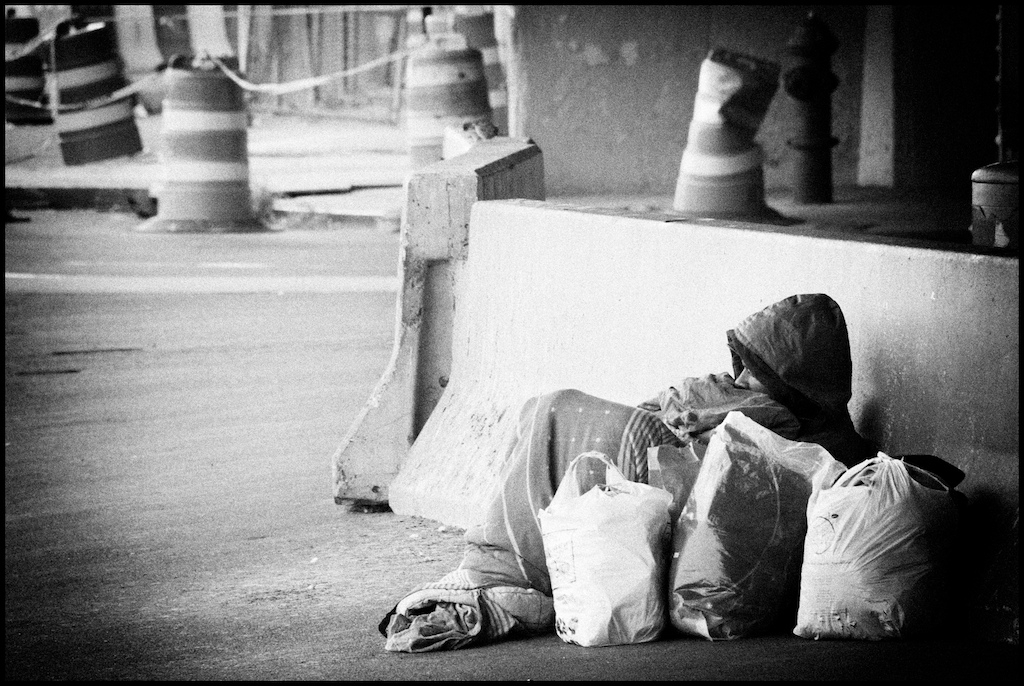Poverty degrades our economy, changes the nature of our cities and the cohesion of our society
“Time to end poverty in Canada” has been the message from the Salvation Army coming across our TV screens this holiday season. A great idea from an organization that fights poverty every day in our country—but is it realistic?
Yes, it is.
Poverty doesn’t just cost the poor their dignity and a reasonable standard of living, it costs us all. A study guided by noted economists for the Ontario Association of Food Banks found that poverty costs the government about $30 billion a year, much of which was health care expenditures because being poor frequently means poor health.
Consider also the homeless. Numerous studies have found that it costs three to four times more to leave someone on the street (in and out of shelters, hospitals, jails) than to give them a home with support services.
And that doesn’t include the millions spent on provincial welfare systems which entrap people with thousands of bureaucratic rules. To which the late Senator David Croll once said, “We spend billions every year on a social welfare system that merely treats the symptoms of poverty but leaves the disease itself untouched.”
It is astounding that here in this rich country that one in seven lives in poverty according to Statistic Canada. For these fellow citizens every day is a battle. Just struggling to get by, these families can’t even dream about getting ahead.
What is also disturbing is that over a million are children even though 25 years ago the House of Commons said it was going to eliminate child poverty by the year 2000.
And then there is the wide gap in wealth and income levels that has come about in the last 30 years now posing a threat to our social fabric. Cities once dominated by middle income neighbourhoods are giving way to greater polarization between high and low income communities. More and more are living pay cheque to pay cheque (if they have a job) with heavy debts. As the TD Bank states in the title of a recent report, it is time to recognize “The Case for Leaning Against Income Inequality in Canada.”
Let’s be clear: poverty and inequality are not obscure issues that only concern economists or policy wonks. It’s degrading our economy, changing the nature of our cities, creating unequal health outcomes and impacting the cohesion of our society.
So, what do we do about all of this? Here are three ways we can end poverty:
- Education is a great enabler and leveller in any society. While Canada overall does fairly well in post secondary education statistics, there are pockets of the population that need attention. For example, the aboriginal high school dropout rate is four times higher than the national average. Improving literacy rates, early childhood learning and skills development to reflect the ever changing job market are all good investments that will pay long term dividends.
And let’s make sure kids don’t go to school hungry. They can’t learn on an empty stomach.
- We need to explore a basic income plan for Canadians. It would start moving people off the costly social welfare systems to an income tax managed formula. It wouldn’t provide for the ‘good life’ but it would ensure that no one in this country goes without the basic needs of nourishing food, warm clothing and decent shelter. We put such a plan in place for senior citizens back in the 1970s and it brought most of them out of poverty. Also, at that time, an experiment in Manitoba called ‘Mincome’ demonstrated a reduction in health care costs and higher school graduation rates.
While there will be transitional costs, overall we don’t need to spend more money, we need to invest smarter, more efficiently and effectively.
- It is time to get serious about tax reform. The last major federal overhaul arose from the Carter Commission in the 1970s. Federal corporate taxes, which stood at 29 per cent in 2000, have been reduced to a current level of 15 per cent without a discernable effect on the rate of employment. Let’s improve the fairness and progressivity of our tax system, tackle tax havens and loopholes and establish a carbon tax.
Yes, it is time to end poverty and reduce inequality in this rich country we are blessed to live in. It’s time to improve equality of opportunity and a better sharing of our prosperity.
By Art Eggleton

